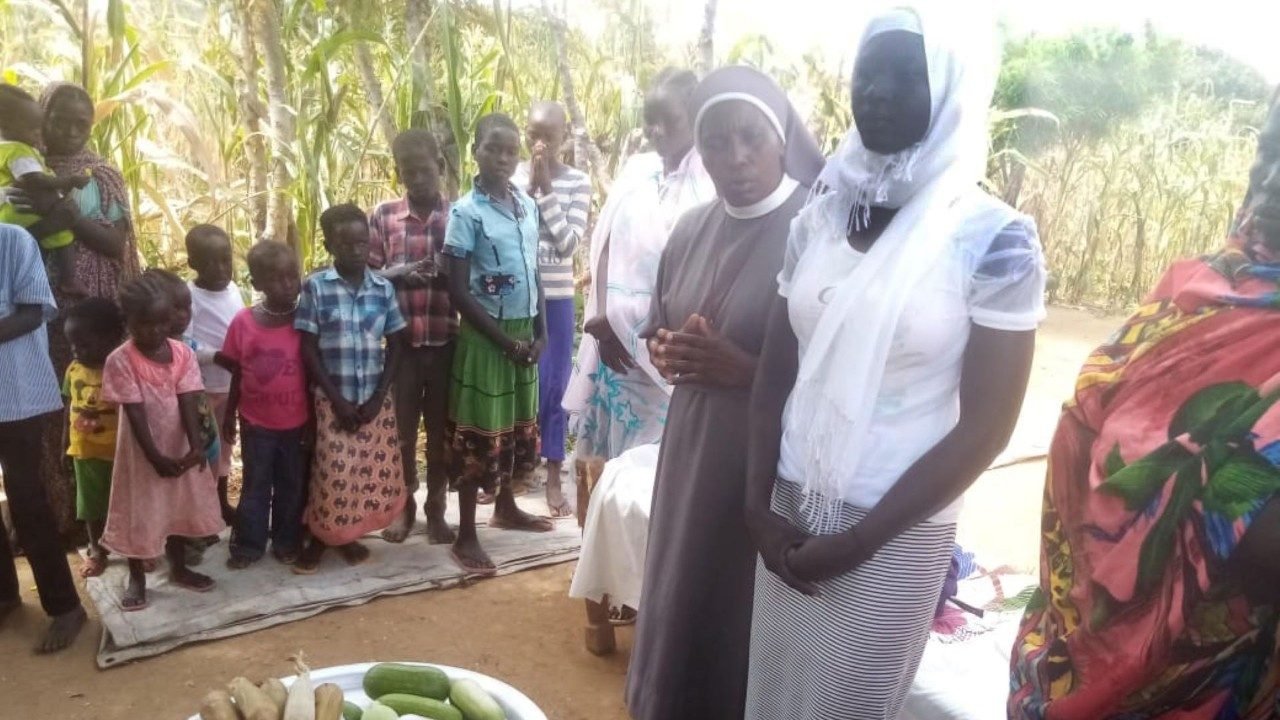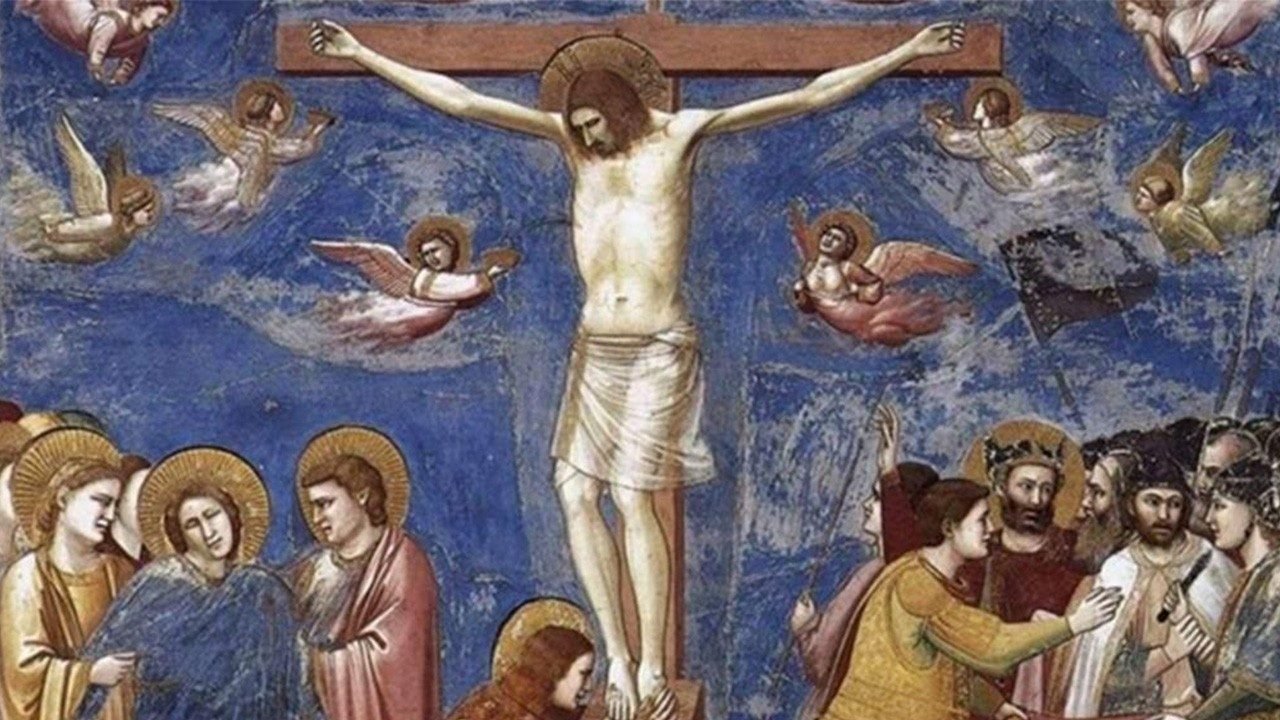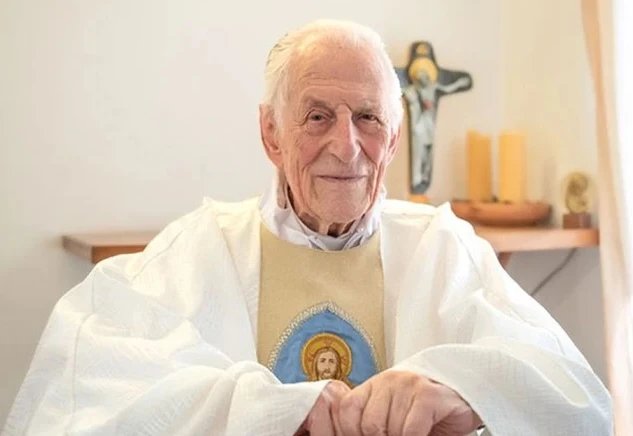
Despite wars and calamities in the Nuba Mountains, the Missionary Sisters of the Precious Blood continue to remain faithful to their service, providing critical services in education and healthcare, working in communities of need, and even contributing to a regional women’s centre.
By Sr. Christine Masivo
For over seven years, Sr. Mary Caroline Lawia, a member of the Missionary Sisters of the Precious Blood, has dedicated her life to serving the people of Sudan. Despite the immense challenges of war and insecurity, she describes her mission as deeply fulfilling and inspiring in her religious life journey.
“There are many challenges in all levels of life,” Sr. Mary Caroline admitted, “but despite all, there is much fulfilment due to the service rendered. The people who are really in need of my service are very happy for our presence with them and for them.”
Founders’ dream
According to Sr. Mary Caroline, the congregation’s presence in Sudan is not by chance but the realisation of a long-cherished dream of their founder. She explained that their founder, Abbot Francis Pfanner, envisioned the Gospel reaching as far as Sudan, and this mission remains at the heart of their ministry today.
Precious blood sisters, as their name implies, work primarily for evangelisation among people and nations who do not know Christ and his Gospel. They are also active in areas where the local Church is not viable, and that is exactly what they are doing now in Sudan. The sisters always try to respond to the needs of the times. In all their activities and mission, they want to be instruments of reconciliation, hope and new life.
Pastoral work at the heart of service
Sr. Mary Caroline’s ministry is primarily pastoral. Her responsibilities are numerous and varied, according to the need at a particular moment, touching the lives of children, couples, and entire communities.
“I direct the Young Catholic Students (YCS) movement at a nearby secondary school, instruct couples preparing for marriage, and teach catechesis to children and adults who are preparing for baptism, Holy Communion and Confirmation,” she said.
She also works closely with catechists, giving them monthly formation, and supports parish associations like the Pontifical Missionary Childhood (PMC) and the Legion of Mary. Once a month, she organises a prayer day for the Legion of Mary members from all outstations.
Her Sundays are often spent in remote outstations, praying with Christians and visiting the poor and elderly. Four times a week, she visits Small Christian Communities (SCCs) in nearby villages for prayer.
“There are many poor people who come to beg in our convent, and I have to attend to them,” she explained. “I also do promotion of vocations by going to primary and secondary schools, giving guidance and counselling every three months.”
A significant part of her mission also involves education, as she is a kindergarten teacher. Children between the ages of nine and sixteen who have never attended school come to the convent, where she teaches them how to read and write.
Challenges
A Day in the Life of a Missionary Sister Life in the Nuba Mountains is far from easy, and the sisters’ daily schedule is rigorous. Sr. Mary Caroline described a typical day:
“First, I wake up early in the morning for meditation, followed by common prayer, and then Mass. After Mass, I go for breakfast, and my busy day starts. In the morning, I visit the elderly, supporting them with food or clothes, and we also visit the sick. Morning is the best because later during the day it’s too hot.”
After returning from visits, she spends time instructing schoolchildren preparing for the sacraments. At 3:00 PM, the sisters gather for common prayer before heading out again to the villages to pray with small Christian communities.
Faith amid hardship
The challenges in Sudan are immense, from poverty and isolation to the harsh climate, but Sr. Mary Caroline remains hopeful and zealous in her ministry. She believes that being present with the people, walking with them in their joys and struggles, is a true expression of Gospel love and living their charism to live and make the Paschal Mystery fruitful through the lives of those they minister to and in prayer.
“Our work here is not easy,” she admitted, “but it is meaningful. We are here because this was the dream of our founder—that the Gospel may reach up to Sudan.”
“Even in the midst of wars and fighting as rampant as they are in the Nuba Mountains,” stressed Sr. Caroline, “We had to stay put with them and for them because we are their hope and if we decide to go back to our countries, who will be with them?”




